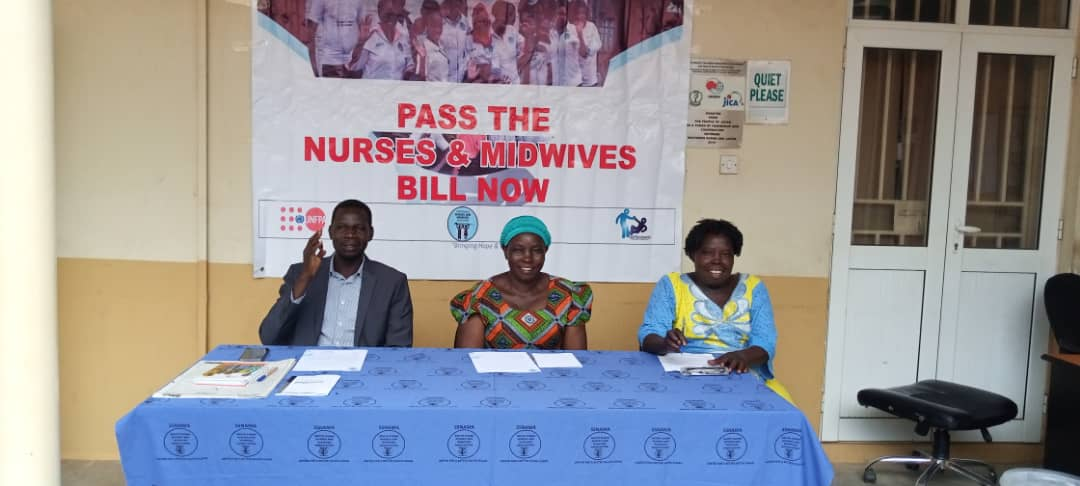
Nurses in South Sudan Demand Urgent Enactment of Bill

By Manyuon Mayen Manyuon, Juba
South Sudan Nurses and Midwives Association as well as the Council of Nurses and Midwives are calling for the urgent enactment of the Nursing and Midwifery Bill once the parliament is fully reconstituted or sworn in.
Repent Khamis George, the Deputy Chairperson of the Association revealed that it was high time for the country to consider enacting such law since nurses and midwives play tremendous role in promoting societal health.
“Nurses play a critical role in health promotion, disease prevention and delivering primary and community care. They provide care in emergency settings and it will be okay to the achievement of universal health coverage,” he narrated.
The campaign dubbed “Pass the nurses and midwives Bill now” was conducted by the South Sudan Nursing and Midwifery Association (SSNAMA) in junction with Okay Africa Foundation (OAF) with support from United Nations Population Fund (UNFPA).
Globally, nurses and midwives account for nearly 50 percent of the global health workforce, according to World Health Organization (WHO).
There is a global shortage of health workers, in particular nurses and midwives, who represent more than 50 percent of the current shortage in health workers, according to WHO as well.
Mr. George said achieving health for all will depend on sufficient numbers of well-trained, educated, regulated and well supported nurses and midwives across the country.
The health worker added that the health workforce be rendered regular payment and recognition commensurate with the services and quality of care that they provide, adding that the Bill was crucial to facilitating such.
“The Bill is very important since it regulates the work of the nurses as well as giving scope of their obligations. It also provides a legal framework and accords the council powers to govern and manage all nurses and midwives across the country,” Mr. George said.
Through the Act, the Council will gain control over nurses by registering all of them in the field, bridging the gap between the Nurses and Midwives through their associations and government, according to the group.
It will also ensure that quality, safe nursing and midwifery services are provided to the public, as it meets the required international standards with other countries in the region.
In 2011, the Nurses and Midwives Bill drafting began and up to date nothing has been materialized so far.
“It is very risky to have the lives of the people in South Sudan entrusted to Nurses and Midwives who are not legislated by law and cannot be distinguished as qualified and certified medical personnel yet patients spend 80 percent of their time with them,” the Chairperson added.
“It is based on this that we urge the public as well as demand that government not to take the enactment of the Nursing and Midwifery Bill lightly but to see to it that this matter is taken of urgency in order to protect lives of People living in South Sudan,” Mr. George concluded.


































